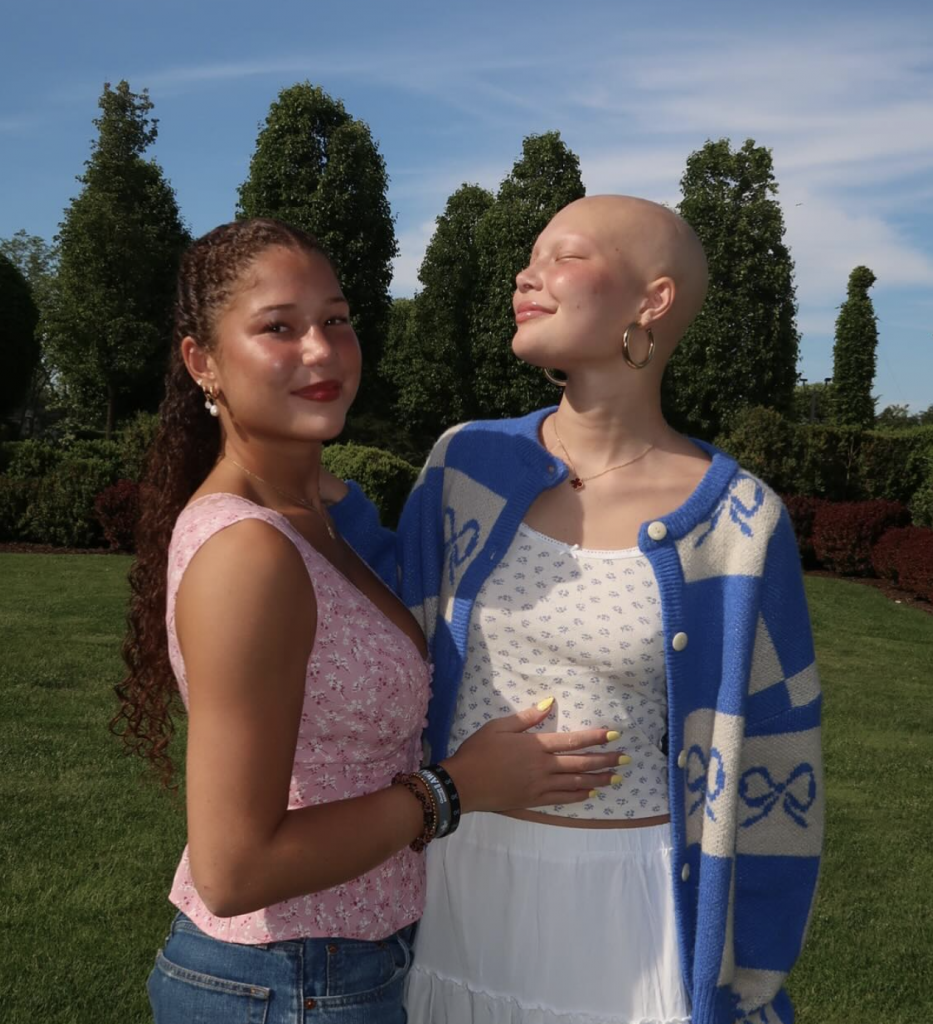A Challenging Time
- ABC personality Michael Strahan, 52, gave a positive update about his daughter Isabella Strahan’s cancer battle in a sweet exchange with Kevin Jonas on Wednesday.
- The 19-year-old University of Southern California student announced in January that she had been diagnosed with brain cancer and had underwent emergency surgery.
- Isabella, who just completed treatment last month, had a rare primary central nervous system tumor called medulloblastoma. This type of brain tumor is malignant, or cancerous, and grows quickly – making it more likely to spread to other parts of the body.
- After a cancer diagnosis, patients and their caregivers can feel a wide range of emotions. Many may feel depressed, anxious, worried, overwhelmed and even full of grief during and after their journey. For caregivers, support your loved one as best you can by being a loving, listening ear and lending support, but also make sure to take care of your own priorities as well so you can better care for your loved one.
During the pop star’s Good Morning America interview to talk Claim to Fame, his new competition show with his brother Franklin on the same network, Strahan’s co-host Lara Spencer addressed Jonas’s recent basal cell carcinoma skin cancer incident.
Read More
“Everything is good, yeah, everything is good … it’s working out,” the former footballer said, with the emotional moment bringing a more subdued, yet optimistic tone.
After undergoing emergency surgery, radiation and chemotherapy, Isabella just completed her treatment last month.
“Please send her our love,” Jonas shared. “Big fans of your family.”

“Thank you. Big fans of yours as well, we’ve known each other a long time,” Strahan replied, bringing his energy back up after the tender moment.
Isabella’s Cancer Journey
Isabella, while embarking on her first year of college at the University of Southern California in Los Angeles, discovered last October that she had medulloblastoma, a rare primary central nervous system tumor, the National Cancer Institute explains.
This type of brain tumor is cancerous and grows quickly, making it more likely to spread to other parts of the body.

Common symptoms for this type of tumor may include:
- Difficulty walking or balancing
- Headaches
- Nausea
- Vomiting
- Difficulty with vision
- Seizures
Isabella’s January announcement came during an emotional interview with her dad and fellow GMA host and breast cancer survivor Robin Roberts.
She explained how last fall, she started getting headaches and nausea and had trouble walking. When she would wake up, there were times when she would throw up blood.
View this post on Instagram
“I was like, ‘Hmm, this probably isn’t good,” Isabella told Roberts on camera.
After sharing her symptoms with her family, Isabella visited her doctor, who performed several tests. They discovered she had a four-centimeter tumor bigger than a golf ball in the back of her brain.
When Strahan learned his daughter was diagnosed with a malignant brain tumor, he struggled to wrap his head around it.
“It didn’t feel real,” he said.
After her challenging journey, Isabella, who has a twin sister Sophia, said she is feeling a calling to help others going through treatment. “I hope to just kind of be a voice and be [someone] who people, maybe, are going through chemotherapy or radiation, can look at,” the model said.

Strahan, who understandably took some time off from hosting duties until recently, said the experience has given him and his daughter added gratitude.
“It’s really made me change my perspective on so many things in my life,” the dad of two said.
Supporting a Family Member Through Cancer
Patients and their caregivers can feel a wide range of emotions when facing a cancer diagnosis. Many may feel depressed, anxious, worried, overwhelmed, and even full of grief. For caregivers, support your loved one as best you can by being a loving, listening ear and lending support, but also make sure to take care of your own priorities as well so you can better care for your loved one.
Dr. Scott Irwin, director of supportive care service at Cedars-Sinai, explains in an earlier interview the grief that may accompany a cancer diagnosis. “Grief comes in waves,” he says.
Dealing With Grief Related to Health Problems
“It often gets better over time, but at certain days, it can look like depression. And other days, people look perfectly normal and can function.”
“They’re grieving the change in their life, the future they had imagined is now different,” says Dr. Irwin, of how a person may feel after getting a cancer diagnosis.
“In cancer care, sometimes, we’re actually forcing some body changes that are beyond what would be normal aging, and that can be even harder for people to deal with where they don’t feel like themselves.”
Understanding Brain Tumors
A brain tumor impacts a person’s brain function and overall health, depending on their size, type, and location within the brain. Tumors that grow big enough and disrupt normal central nervous system functioning can press on nearby nerves, blood vessels, or other tissues. The disrupted central nervous system can present in various ways, making walking or maintaining balance difficult.
Hope for aggressive brain tumors
Brain tumors may be benign (non-cancerous) and malignant (cancerous). There are various types of brain tumors, with gliomas being the most common cancerous type of aggressive primary brain tumors.
Treating Brain Tumors
Treatment options for brain cancer depend on a variety of factors, including the size and type of the tumor as well as the grade of the tumor.
Surgery, radiation, and chemotherapy are options doctors use to treat brain tumors – and it is always a good idea to discuss your treatment plan with multiple doctors.
The prognosis for brain cancer, or how likely it is to be cured, depends on a number of factors:
- The type of brain tumor
- How fast the brain tumor is growing
- The tumor’s location
- If there are DNA changes in the cells of the brain tumor
- If the entire tumor can be removed with surgery
- Your overall health
Your doctor will be able to help you understand your specific and unique circumstances and how they relate to your prognosis.
Learn more about SurvivorNet's rigorous medical review process.

